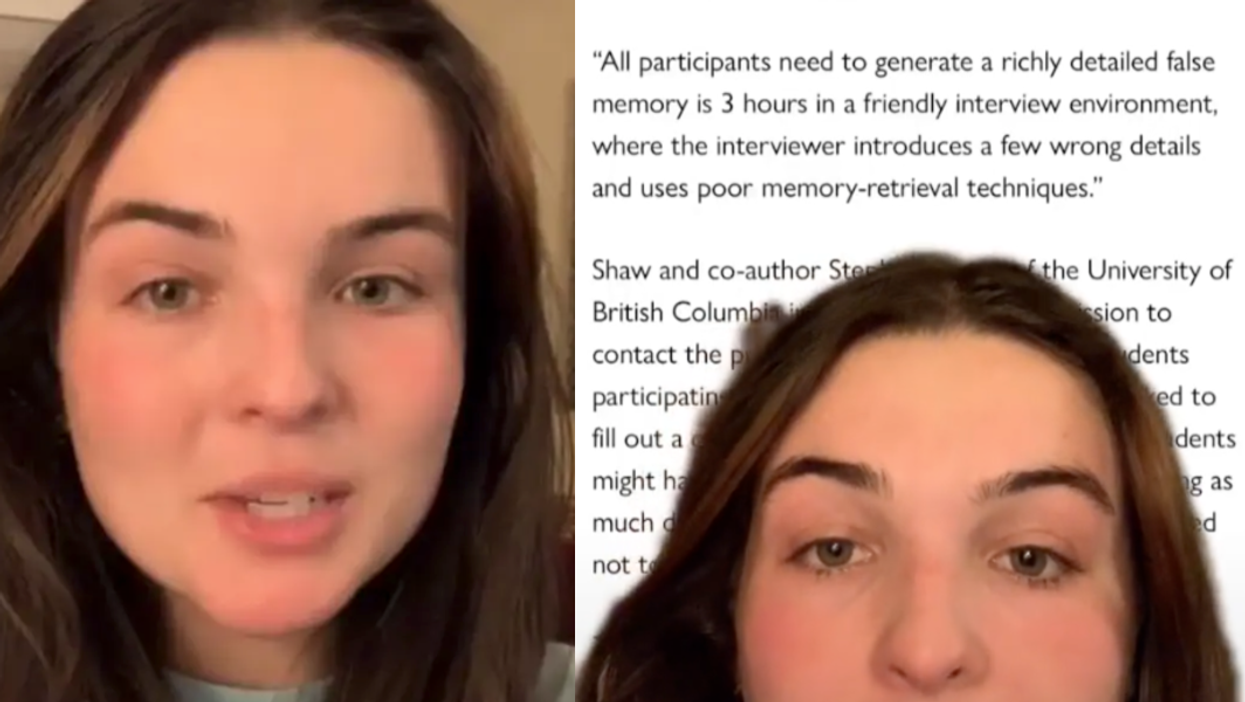Greg Evans
Mar 27, 2021

@victoriahammett/TikTok/Screengrab
A psychologist has revealed that brainwashing, despite being unethical, is actually ‘surprisingly easy.’
In a TikTok video made by Victoria Hammett, a psychology major at the University of Southern California, she explains how easily the brain can be manipulated and why it might ‘explain some of the issues in the US Justice system.’
The main basis for her argument in the video is something called the ‘misinformation effect’ which occurs after someone is given different information about an incident causing their perception of what happened to dramatically alter.
She gave an example of a study conducted on a group of people who had all just watched the same car crash. One-half of the groups were asked ‘what speed the cars were travelling at when they smashed into each other’ while the other half were asked what speed the cars were moving at when they ‘made contact.’
This slight change in the phrasing of the question caused the participants in the study to have vastly different answers. She adds: “Group one estimated that the cars were going much faster than group two did. It shows how even word choice can alter someone’s memory.”
Read more:
- Wendy’s chicken sandwich nightmare sparks fierce TikTok debate
- Priti Patel gets the meme treatment after Home Office spends £77,000 on eyebrows
- The key people moving to GB News and who else is rumoured to be joining them
- These maps and images show exactly what went wrong with Ever Given in the Suez
Hammett goes on to explain how this phenomenon can force people to believe something that didn’t even happen. She explains that this can sometimes be used to convince people into thinking that they committed a crime that they actually had nothing to do with.
She continues: “False memories can be so realistic that they show up on MRI scans as real memories. This is why people confess to crimes that they didn’t commit and why eye witness testimony can be wrong. “
The same principle can be applied to people who have chosen to believe in the widely debunked QAnon conspiracy as the below video explains.
It’s worrying to think that it could be that simple and that we could all be susceptible to it but worth bearing in mind for the future.
More: We should follow the science on poverty and give cash grants to those in need
Top 100
The Conversation (0)













